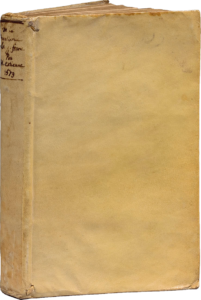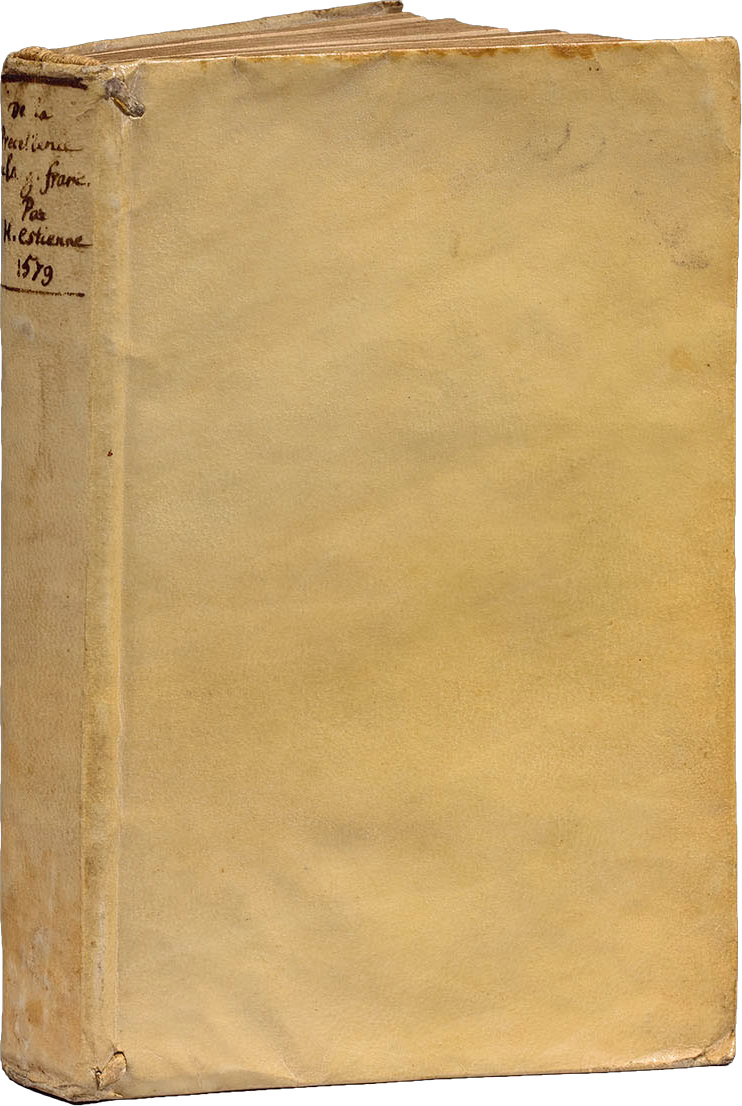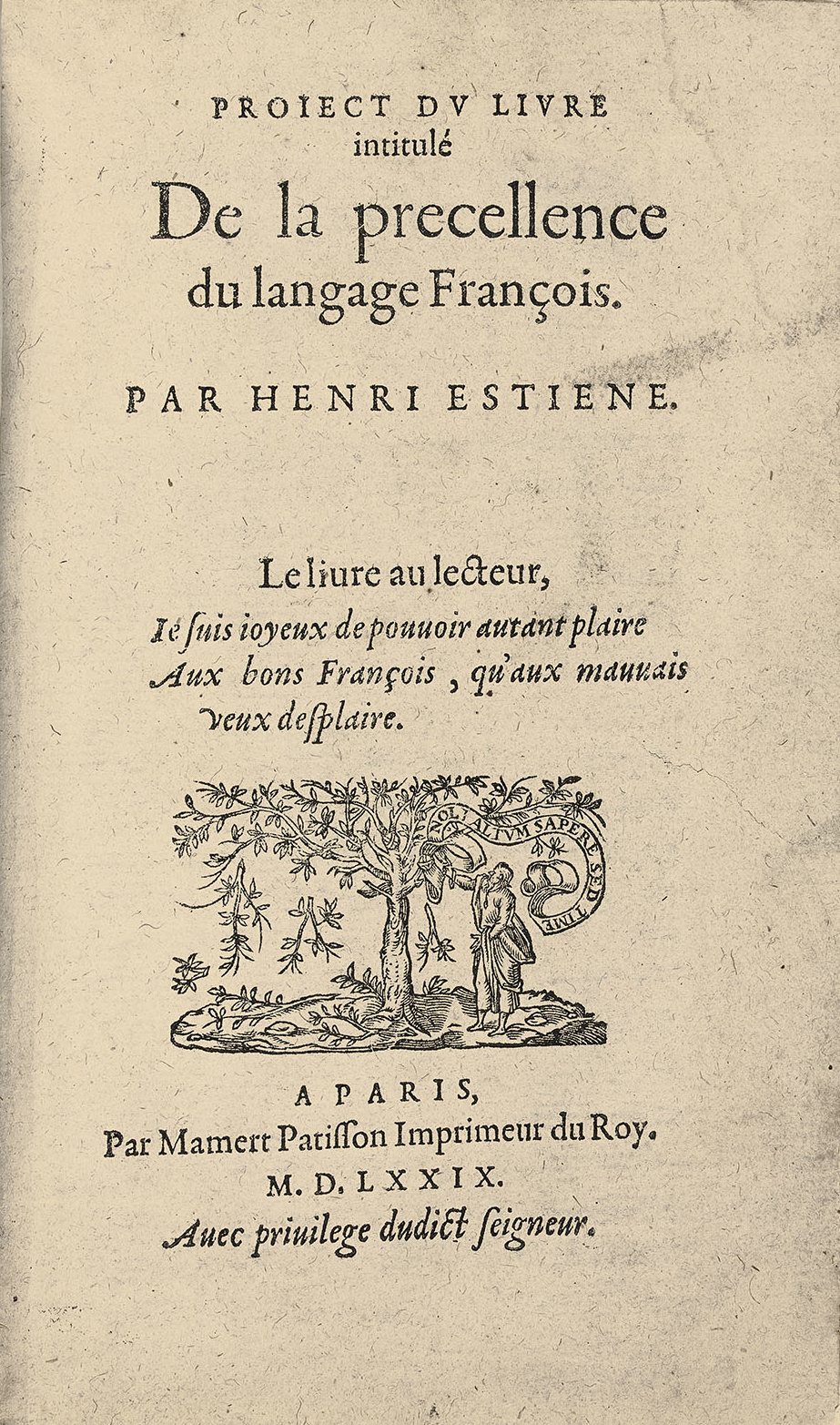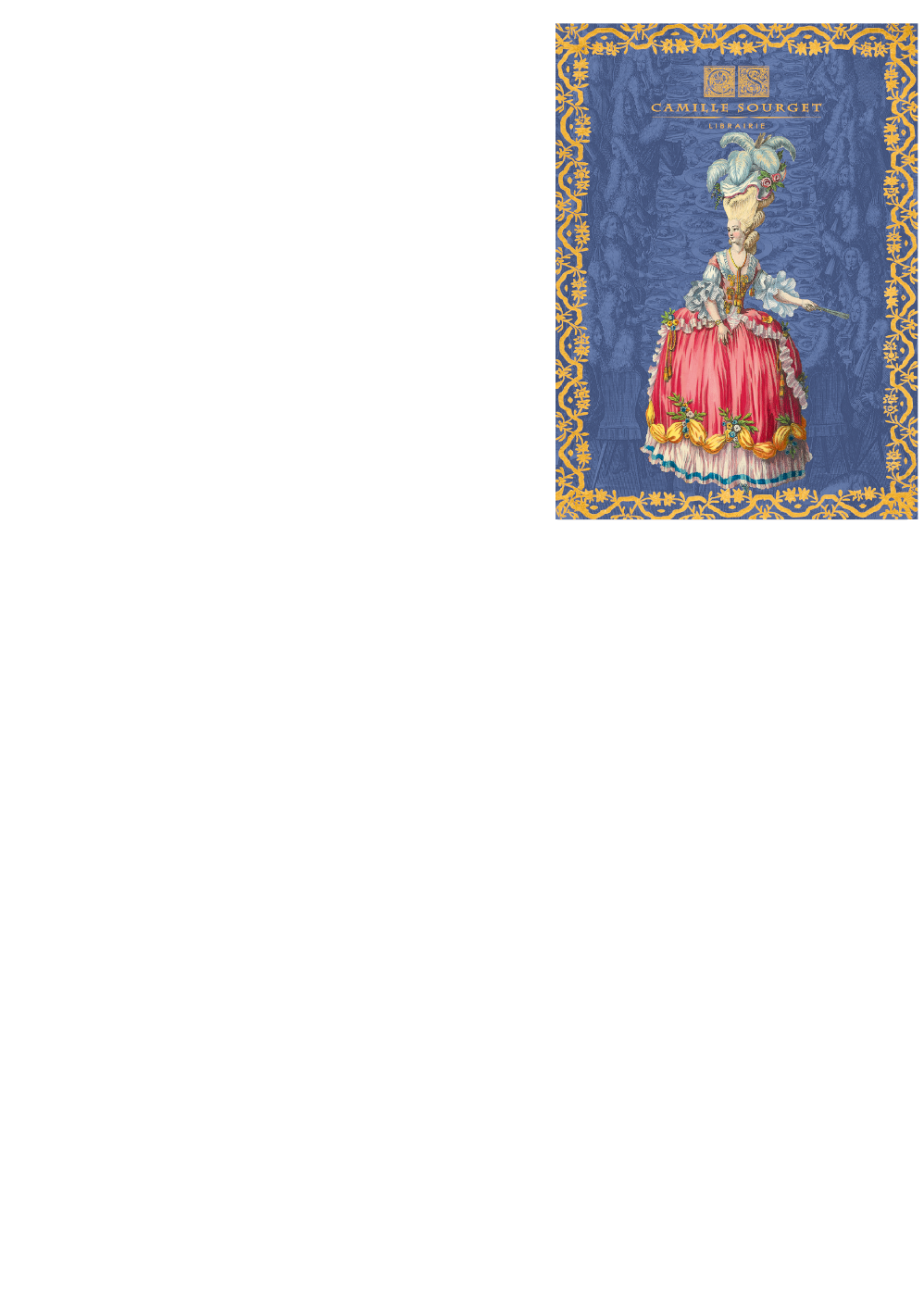Paris, Mamert Patisson, 1579.
8vo [154 x 96 mm] of (16) ll., 293 pp. numbered 295 and 1bl.l. Full ivory vellum, flat spine with handwritten title at the top. Contemporary binding.
First edition of “this sought-after volume” (Bulletin Morgand and Fatout, n°8187)
Henri II Estienne, also called le Grand, lord of Grière, was a prominent typographer, philologist, scholar, satirical author, polemist, and grammarian.
The works of Estienne make him one of the pioneers of the defense of French language following Joachim Du Bellay and Estienne Pasquier. His fervor for the language of his motherland even exceeds theirs. He has a proper doctrine on the matter. This doctrine can be brought to a strict syllogism: 1° there has never been and never will be a more beautiful language than Greek, 2° yet, French is the closest language to Greek, 3° therefore, French is superior to all other modern languages.
This « Projet du livre intitulé De la précellence du langage françois », Mamert Patisson, 1579 is a remarkable work. Estienne not only recommends using French as Du Bellay, Pasquier or Ronsard did, he disputes the Latinists in that he argues that the qualities of French make it a literary language not only along but above Latin.
First edition dedicated to Henri III by a long epistle. – In his struggle in defense for French language, Estienne had published Deux Dialogues du nouveau langage français italianizé in Geneva in 1578. In the book he stigmatized the abusive use by the French court of Italian words. Condemned by the Grand Council of Geneva, Estienne had fled to Paris where he was to publish this new book, ordered by the king, the most detailed and complete of his three books dedicated to French language. The humanist resumes his former development on the value of French as opposed to the value of Italian, Latin or even Greek. To prove his point, he references Dante, Petrarch, Boccaccio, Bembo and Ariosto, as well as the French Desportes, Baïf, Belleau, Du Bellay and Ronsard. – Renouard, Annales Estienne, p. 181, n° 3. – Schreiber, The Estiennes, 250.
An interesting analysis brings Estienne to compare his own translation of Virgil’s verses to the one given by Ariosto; he cites five successive versions of various passages to prove the superiority of the French language over the Italian language. He then proceeds to show how Ronsard started to re-translate Virgil’s verses previously put into Italian by Ariosto. It was the time when Ronsard, still waiting for a royal reward, postponed finishing his Franciade and distributed fragments of the manuscript; the fourteen verses reproduced by Estienne are part of this work’s prolegomena. (cf. Exposition Ronsard, Paris, Bibliothèque nationale, 1985, 11° 176).
This rare first edition is almost unobtainable in pure contemporary binding such as the present copy.
Pierre Berès presented a later bound copy, circa 1800, in his catalog “Des Valois à Henri IV”, n°114. In 1994, 32 years ago, this copy was sold for 65 000 F (ca. 10 000 €)
Provenance: the copy belonged to the philosopher Charles Renouvier (1815-1903), with his signature at the back of the endpaper, along with the mention “Florence mai 1842”. It then belonged to Dr Francis Pottiée-Sperry, “Montaigne et son temps”, dispersed by Sotheby’s a bit over 22 years ago. (Paris, November 27th 2003)
Then estimated 12 000 to 18 000 € with charges, this copy was then sold for almost 15 000 €.
Precious copy preserved in its pure contemporary vellum binding.



